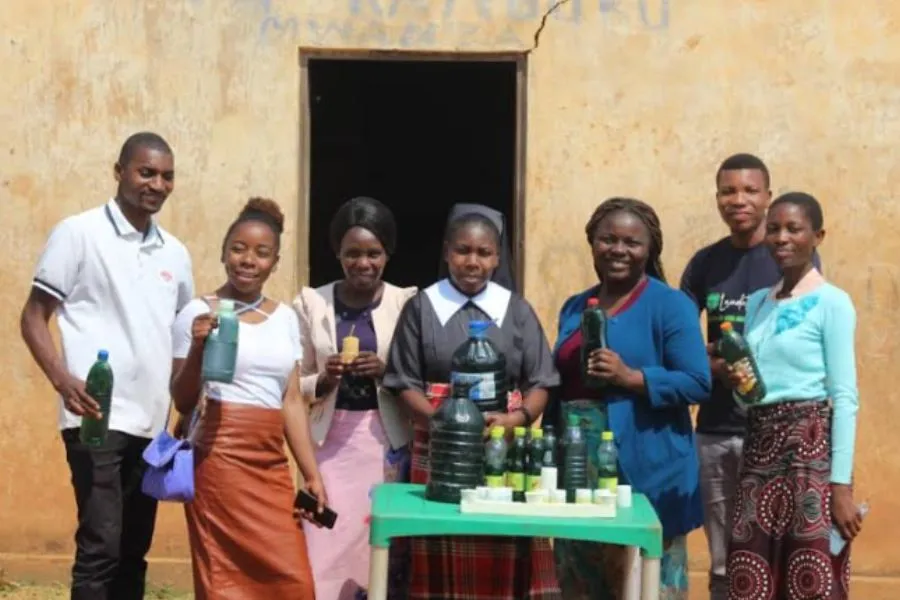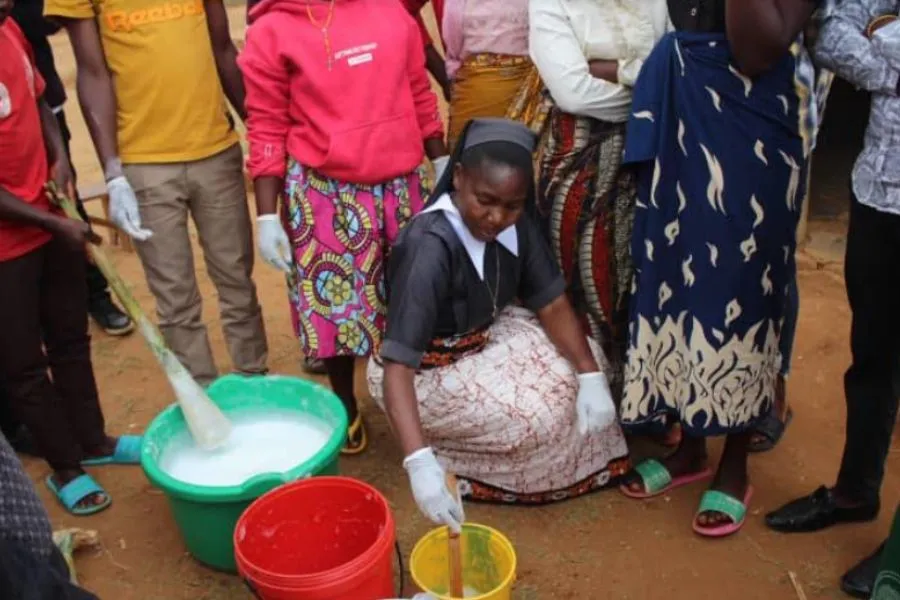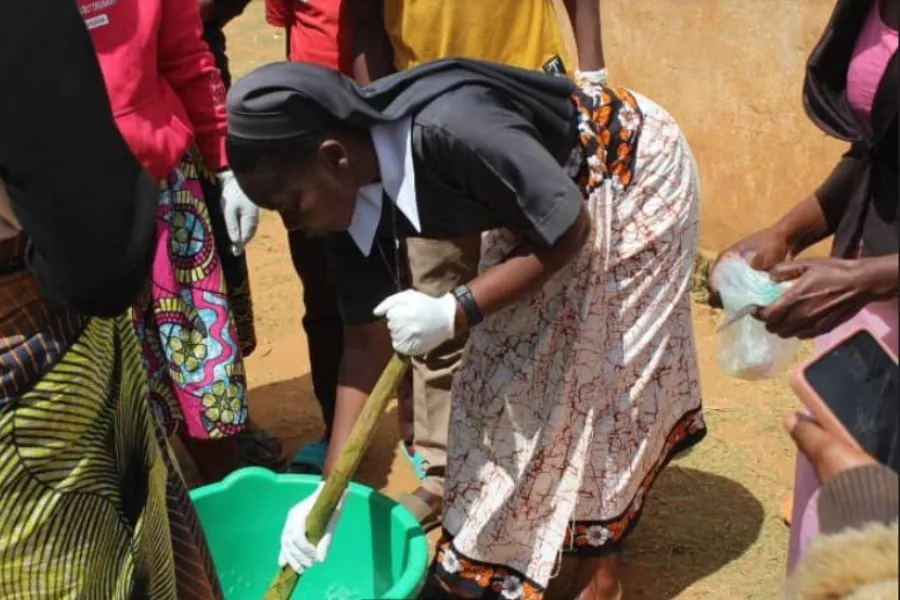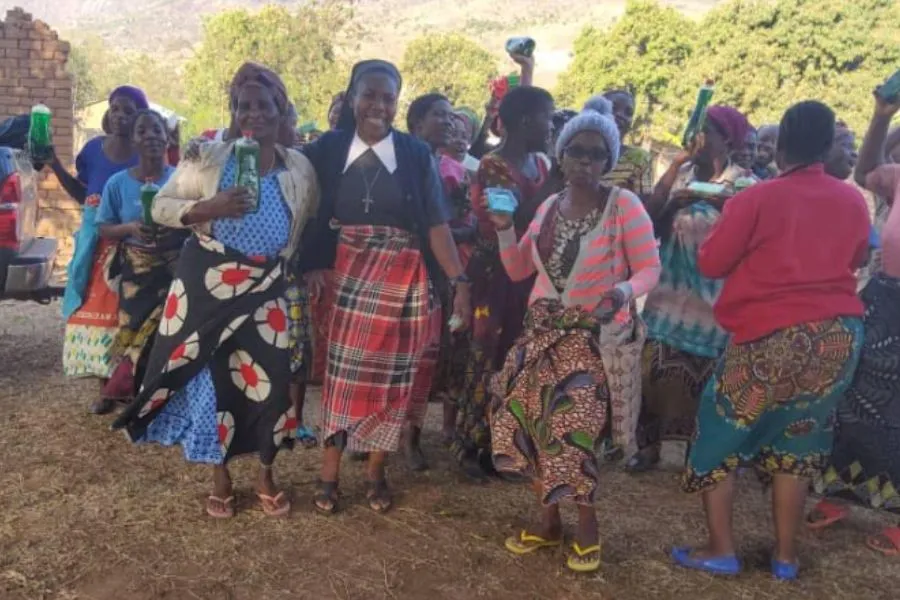“In entrepreneurial, we train them in soap making so that they can earn a source of income through it,” she said, and added, “Some of them are given initial capital to kick start their business.”
Sr. Mulenga underscored the need for a strategic approach, and called for “coordination among agencies combating this issue and people also need to work together.”
“We need to help the local people mostly in the rural areas and villages to ensure that they receive the right education so that they can understand situations and also help them be economically empowered because not everybody can be employed by the government,” she said.
The Malawian Catholic Nun went on to challenge her country’s government “to do a lot of research about the real situation on the ground and come up with practical policies to mitigate the issue.”
In a separate interview with ACI Africa, Fioney Kaliati, one of the beneficiaries of EC3TIP, the anti-trafficking initiative in Malawi, acknowledged with appreciation the training.
(Story continues below)
“It was a nice training; most villagers around participated. We learned a lot on how to save money mainly in groups; we are able to do small business. We also learned how to make other products like soap,” Ms. Kaliati said during the Monday, September 18 interview.
She added, “We also learned how to protect the environment. l encourage people to take part in fighting against human trafficking.”
In another interview, the Secretary for CADECOM in the Archdiocese of Blantyre said that the EC3TIP initiative that is carried out in collaboration with community police, leaders, learners, and members of the parliament has had “over 15 cases with five traffickers being sentenced and 10 still in court.”
Mandinda Zungu told ACI Africa that the initiative is also implemented in collaboration with governments from South Africa and Mozambique where some of the victims are trafficked, with success stories of the cooperation.
 Credit: Sr. Teresa Mulenga
Credit: Sr. Teresa Mulenga
“In April last year, we rescued four girls, who were being trafficked to Turkey and the tip came through CADECOM from a family member whose daughter was being trafficked,” Ms. Zungu said during the September 18 interview,
She added, “We also provide reintegration in the sense that once a person is rescued we ensure that they are reintegrated in the society through either village settings or other income-generating activities such as being equipped with vocational skills.”
Through the Malawi Network Against Human trafficking where she is a board member, Ms. Zungu said that she has been able to lobby for funds to help some of the stranded human trafficking victims, facilitating their return to their respective countries.
ACI Africa was founded in 2019. We provide free, up-to-the-minute news affecting the Catholic Church in Africa, giving particular emphasis to the words of the Holy Father and happenings of the Holy See, to any person with access to the internet. ACI Africa is proud to offer free access to its news items to Catholic dioceses, parishes, and websites, in order to increase awareness of the activities of the universal Church and to foster a sense of Catholic thought and culture in the life of every Catholic.




 Credit: Sr. Teresa Mulenga
Credit: Sr. Teresa Mulenga
 Credit: Sr. Teresa Mulenga
Credit: Sr. Teresa Mulenga Credit: Sr. Teresa Mulenga
Credit: Sr. Teresa Mulenga Credit: Sr. Teresa Mulenga
Credit: Sr. Teresa Mulenga


